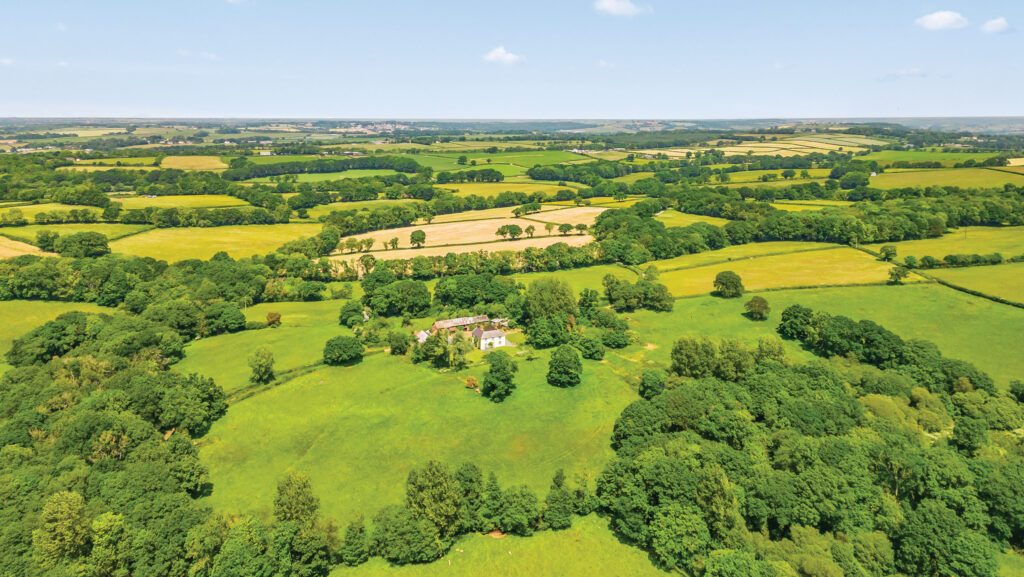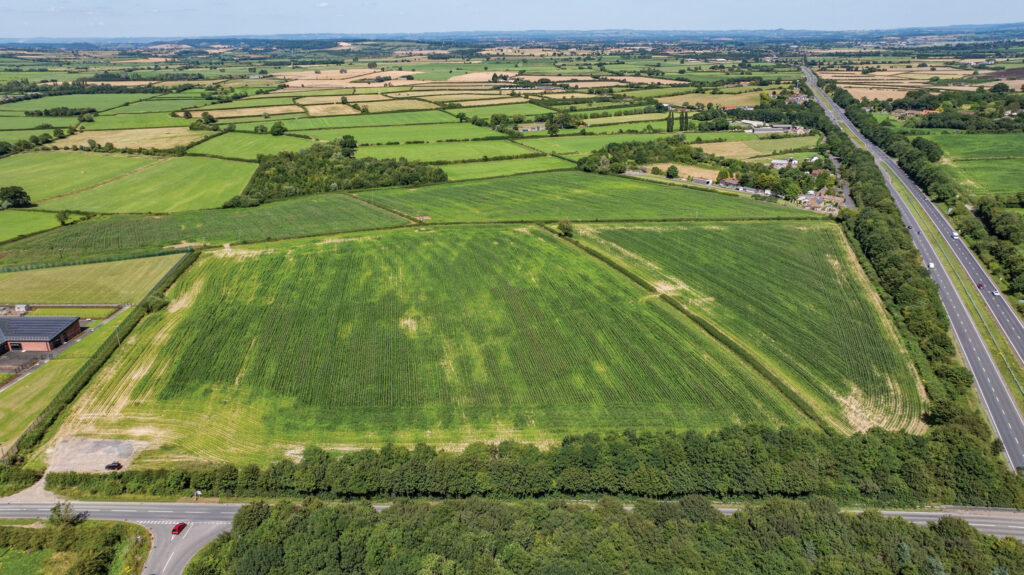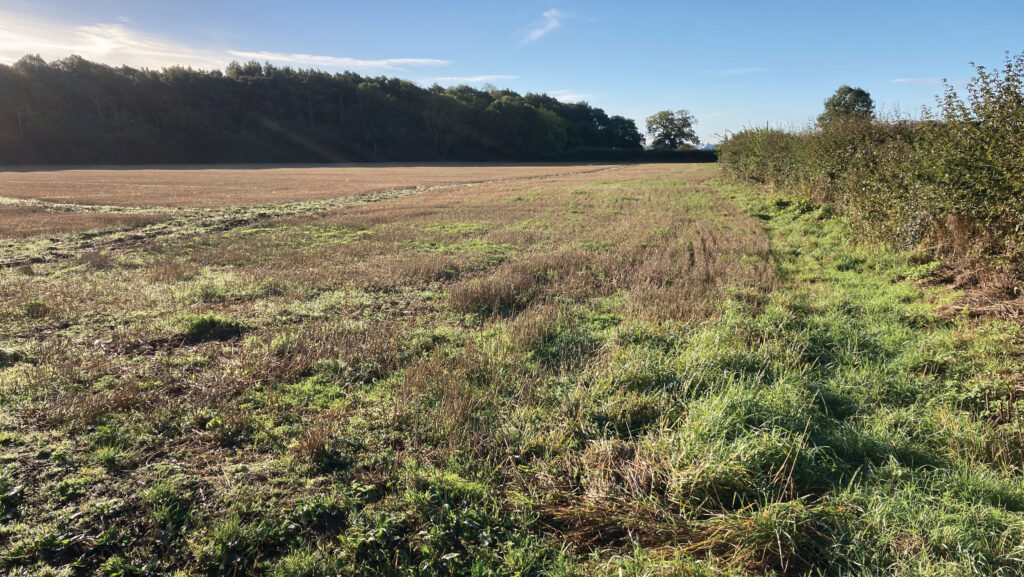When is auction for land and property a sound option?
 Westacott Farm © Stags
Westacott Farm © Stags Traditional auctions in a live or digital setting often allow agents to achieve sale prices for farms and agricultural land significantly in excess of their guide price, which is clearly demonstrated by some of 2024’s results.
Most farm and bare land sales are now by private treaty, but auctions continue to play an important role.
See also: Bare land block numbers stay high for second year
Earlier this year, West Country-based Stags sold Westacott Farm, a 69-acre holding near North Tawton, Devon, at auction for £1.14m.
The farm, with a five-bedroom Grade II listed Georgian-style farmhouse in need of renovation comma and other buildings, had a guide price of £900,000.
Stags also used this platform to sell 42 acres of grassland at Vale Down, near Okehampton, for £286,000, land which was offered for sale at a guide of £180,000-£200,000.
For 35 acres of pasture at Forda, also close to Okehampton, £276,000 was achieved against a guide price of £200,000-£225,000.
The firm’s head of farm agency, George Alder, says the element of competition an auction creates often helps to drive up prices.
Stags has sold 60 properties by public auction so far in 2024, and has been instructed on a further 20 before the year end.
Speedy sale advantage
One of the appeals of the auction format is that it speeds up the sales process, with an average of six weeks between details being released and sale day, followed by a requirement to complete within four to six weeks.
The trend towards lotting has removed some volume from the auction market, but Carter Jonas partner Jack Mitchell says this method can still be advantageous.
For example, a lot may be offered for sale by auction on a specific date and the buyer given first refusal on the option to buy further related lots at a fixed price.
This is popular for sales of land with development potential – or in the case of bare land sales, to achieve a sale at the same price per acre as is achieved at auction for the first lot.
This happened last month in the sale of land at Ash, near Martock, south Somerset.
A 25-acre parcel of productive arable land was sold at a Carter Jonas auction for £366,000.
The sale conditions set out that the buyer of that lot was given the right to purchase lot 2 at the same price per acre, which they took.

Land at Ash © Carter Jonas
Similarly, an auction can also allow the option of selling the whole, while also offering a property in lots.
This gives a bidder wanting to buy the whole some certainty that they will be able to achieve this, provided they are successful in buying the first lot, says Jack.
For example, a bidder bought lot 1 of a development site at West End Farm, Marston Magna, near Yeovil, for £305,000 in September 2023.
This was a building with permission for conversion to a detached four-bedroom dwelling. Two modern buildings were included, along with grassland, all on 3 acres.
The same buyer then took the option to purchase the two remaining lots at their combined guide price of £350,000 at the auction.
Duty-of-care sales
Sale by auction is a platform that is still popular in situations when the vendor has a duty of care to third-party beneficiaries, such as in executor and trustee sales, where the vendor must be able to demonstrate that market value has been achieved in a transparent manner, says Jack.
Auctions are also often used in local authority sales, such as for county council farms, where a public asset is being sold.
However, it is now relatively rare to see whole farms offered by auction, with private treaty usually being preferred to get competition for individual lots.
Auctions are also often effective at driving up prices for small blocks of land. Brown & Co, which runs all its auctions online, sold two blocks of land on 23 October for prices significantly higher than their guides.
Auctioneer Peter Hornor achieved £256,000 for just under 10 acres of agricultural land at Besthorpe, Norfolk, which had a guide price of £70,000-£90,000, and one and a half acres of amenity land nearby for £115,000 – this had been marketed at £15,000-£20,000.
Neither block had planning consent in place for an alternative use.
“These sales demonstrate the value of auctions in maximising competition and prices,” says Peter.
Auctions can deter some buyers as the method relies on funding already being in place.
Contracts are deemed to have been exchanged on the day of auction and there are then four to six weeks to get the sale completed through a cash purchase or pre-arranged finance.
It does give certainty to the vendor, however that the sale will go through.
Forthcoming auction in Norfolk
Brown & Co is auctioning five and a half acres of productive arable land at Foulsham Road, Hindolveston, Norfolk, on 12 November.
The land has a guide price of £60,000 to £80,000 and is part of a bigger arable holding, but this parcel is being sold via online auction because of its potential amenity value.
The firm says that its success in achieving higher values at auction for similar blocks was a reason for opting for this format.

Land at Foulsham Road © Brown & Co
